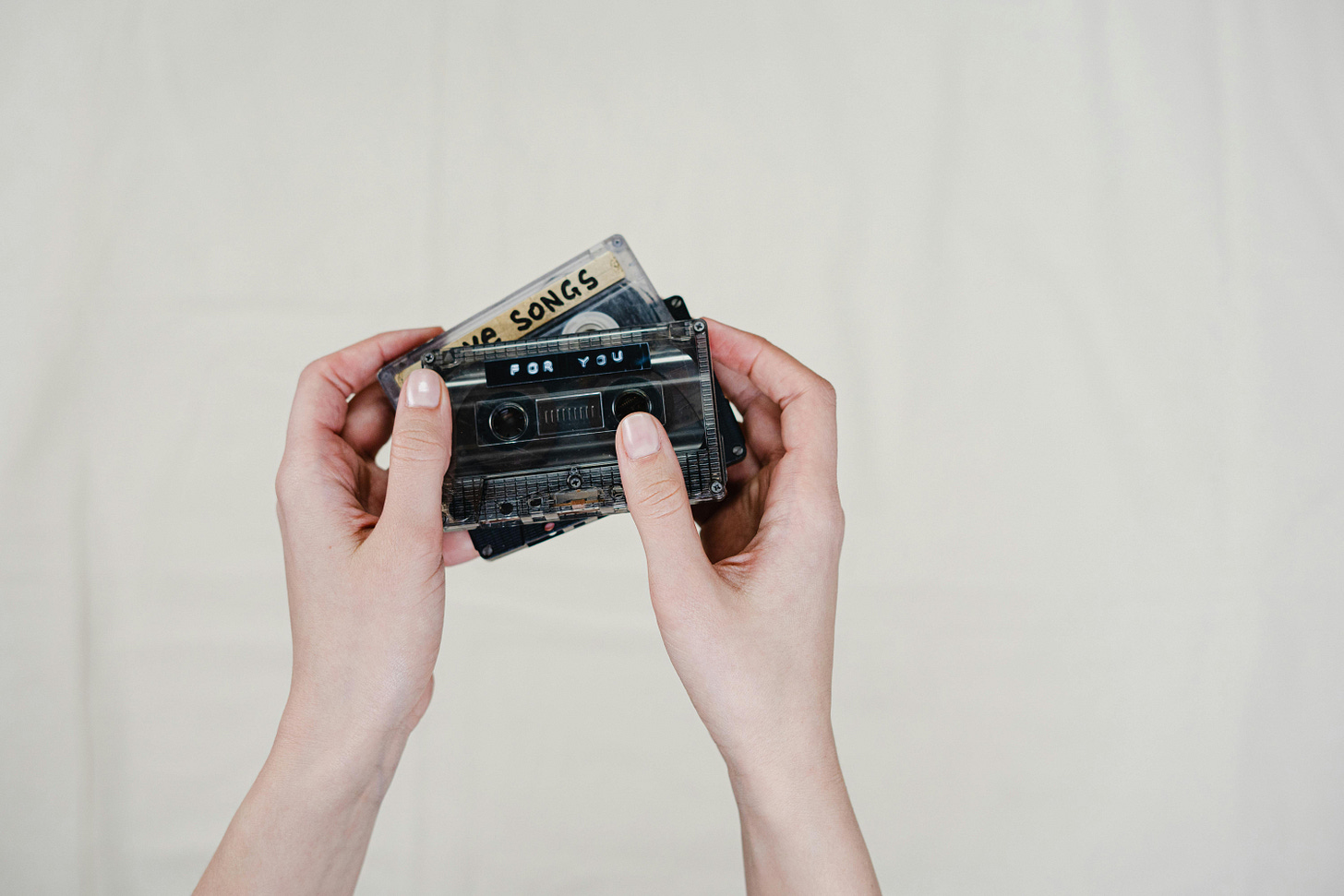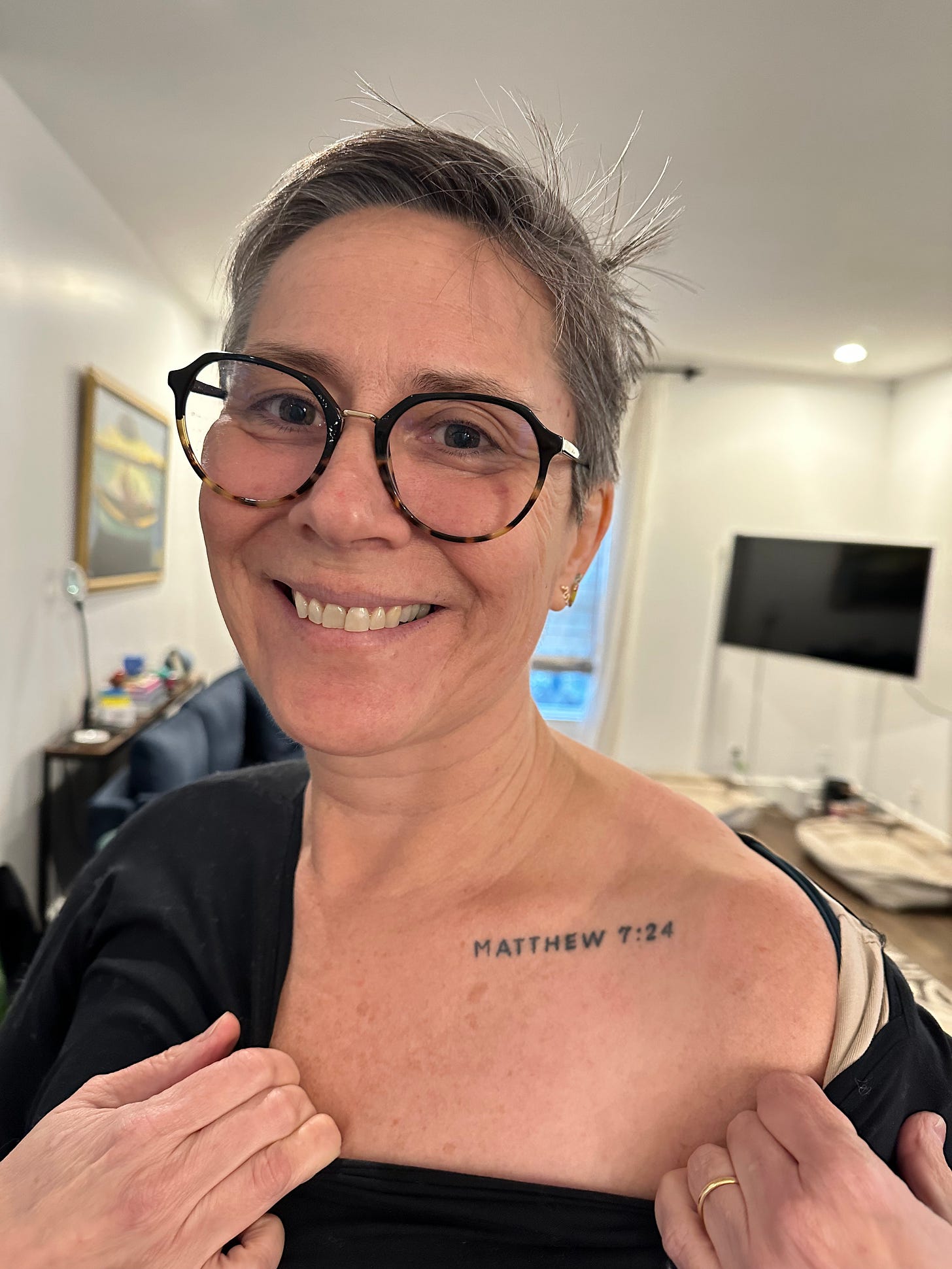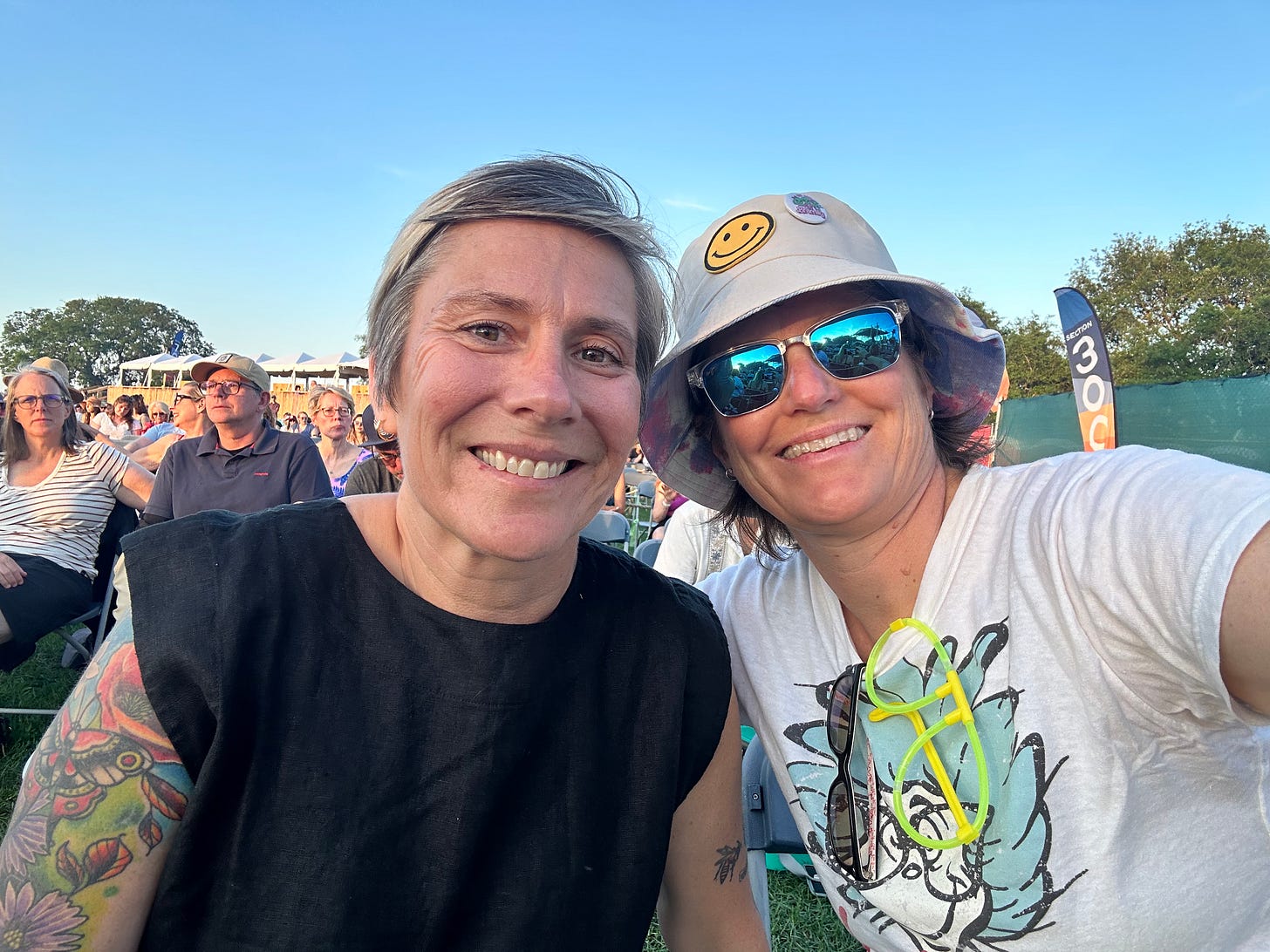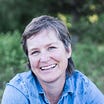The Mix Tape That Led Me Home
Hearing ourselves in a song—a reflection of our journey and the life we were building together—can give us a shared language when other words fail.
Each week, The Queer Love Project publishes an original essay. Want to submit your essay and add to our growing archive? Find our submission guidelines and more here.

Molly Booker is an author, songwriter, and advocate for self-discovery and authenticity. Her book, Magic in the Mess, explores the beauty found in life’s chaos, while her song “No More Boxes,” recorded in Nashville’s legendary Blackbird Studio, challenges societal expectations around identity.
Passionate about storytelling, personal growth, and meaningful connection, she strives to inspire others to embrace their truth, slow down, and recognize the internal nudges that guide them. You can also find more by Molly at the Magic in the Mess Substack.
I grew up with music much like everything else in my life—curated for me. I listened to what I was told to listen to. Mostly ‘60s and ‘70s music. My brothers blasted Metallica, Iron Maiden, Megadeth, and Red Hot Chili Peppers. But none of it felt like mine.
I gravitated toward music that I thought would help people like me. I loved the Beatles because my dad loved the Beatles. But where was my music? I wouldn’t find it until decades later—because that’s when I’d finally find myself.
As I shed layers of misunderstanding and untruths about myself, I began to discover the things I had long been searching for. U2 carried me for a while. "I Still Haven’t Found What I’m Looking For" became my anthem. It turns out that what I was looking for wasn’t a person, a career, or a thing—it was me.
Seminary helped me unravel and deconstruct the rules I had followed, the expectations I had obeyed—including who to be, what to love, how to love, and who to love. When I questioned these so-called foundational truths, I realized they weren’t built on solid rock as I had once believed. My dad wasn’t who I wanted to be. Much of what I had clung to was sand. Perfectionism, which I had mistaken for a gift, was actually a prison.
It turns out I’m not a gender failure—I’m gender nonconforming. I’m not ugly, unlovable, or a failure at relationships—I’m gay.
Coming out was both terrifying and exhilarating, made even more intense by the fact that my now-wife Kelly was going through the same transformation at the exact same time. We were both leaving marriages, careers, and identities behind. And through it all, music held us together—it was the light leading us forward.
Kelly made me a playlist—I call it a mix tape—called For Your Drive. We would text each other songs back and forth, falling asleep to them over the phone: me in Colorado, she in Nashville. For Your Drive carried us through that season of upheaval, of unraveling and becoming.
And then, when I followed her to Nashville, I found something I never thought possible—I found my own music. My own lyrics. I began to write and record my own songs about life, love, coming out, and, most of all, coming home to myself.
But the song that became our foundation, our vow, our heartbeat, was Brandi Carlile’s “You and Me on the Rock.” It was hearing ourselves in a song, a reflection of our journey and the life we were building together. As Brandi sings:
“I build my house up on this rock, baby
Every day with you
There's nothin' in that town I need
After everything we've been through
Me out in my garden and you out on your walk
Is all the distance this poor girl can take
Without listenin' to you talk
I don't need their money, baby
Just you and me on the rock…”
The lyrics weren’t just words; they were a promise, a commitment, a vow we spoke to each other. Kelly even had the Bible verse that inspired it, Matthew 7:24, tattooed over her heart—a permanent reminder of the love that saved us, of the music that guided us home.
This song is our song.
Music is a mirror. It reflects who we are, where we’ve been, and where we’re going. It tells our stories before we even have the words. Music has the power to help us see ourselves, to find ourselves, and to lead ourselves home.
Queer music has always carried that power—offering a beacon of light, a voice for those who needed to hear themselves in song. Artists like Boy George, Elton John, Queen, Tracy Chapman, Melissa Etheridge, and George Michael have paved the way, showing us that there is space for us, that we are seen, that we belong. Their music became anthems of resilience, hope, and liberation.
Through the ages, melody and song have given us a language when words failed. Music connects us across time and space, telling stories that remind us of who we are and who we are becoming. And in sharing those stories, in singing our truth, we create a vibration that echoes far beyond us—one that says, we are here, we matter, and we are never alone
Molly & Kelly’s For Your Drive playlist.








Speaking of a journey and KD and Melissa: https://www.youtube.com/watch?v=vE4nij3AZso
It's a lovely story, and that's one heck of a playlist, too! xo